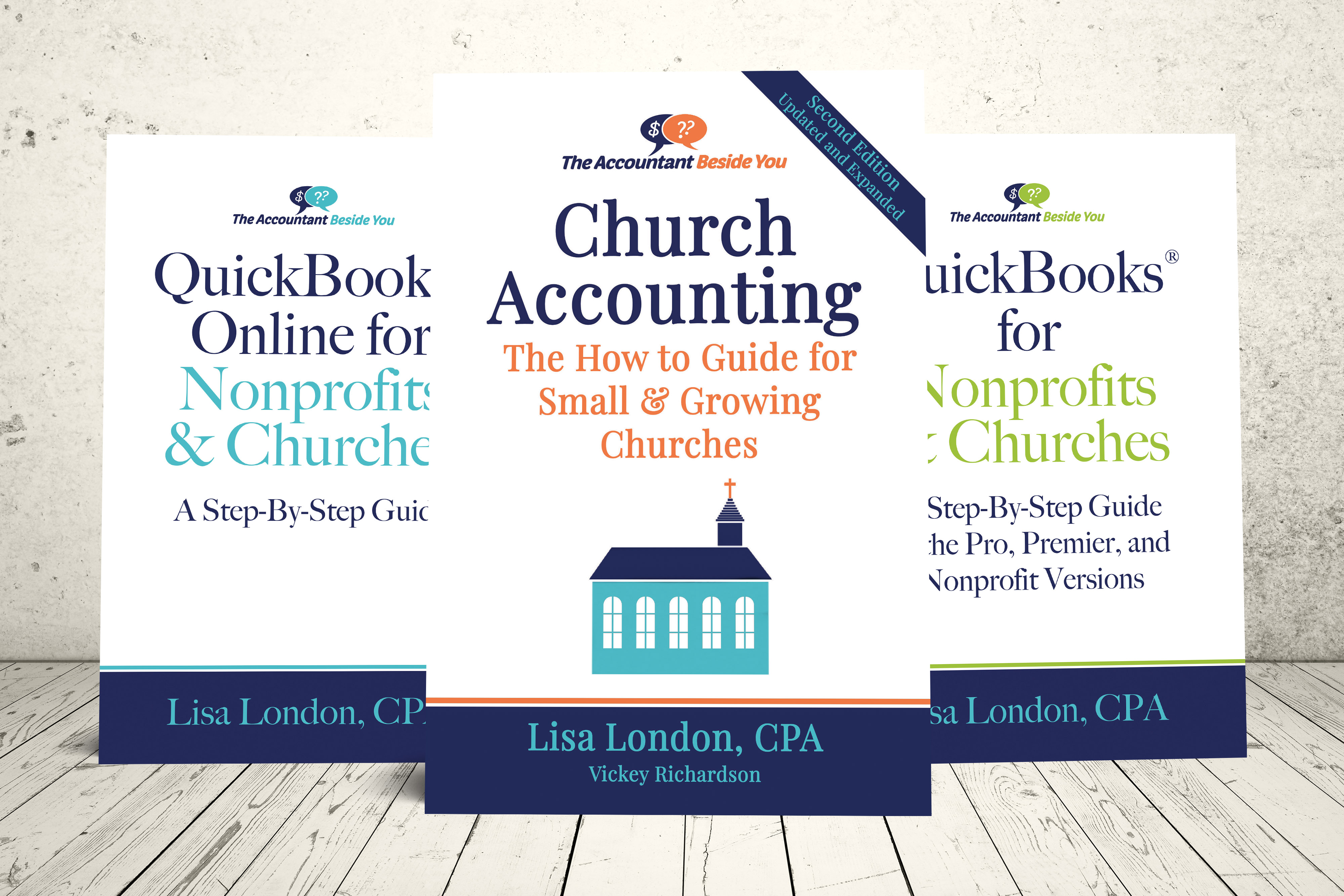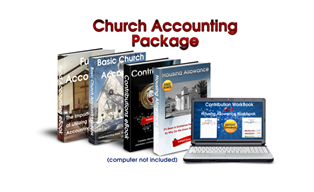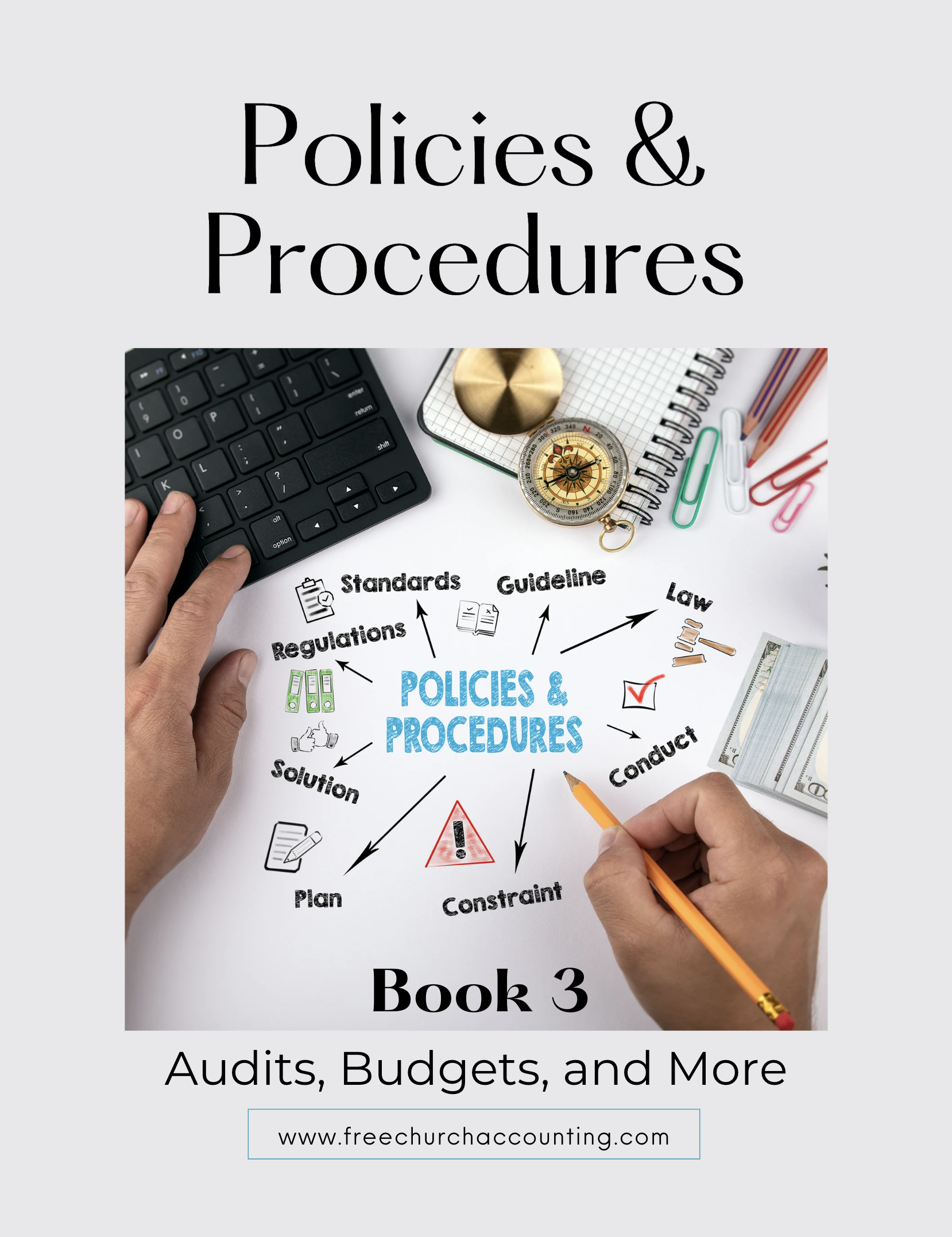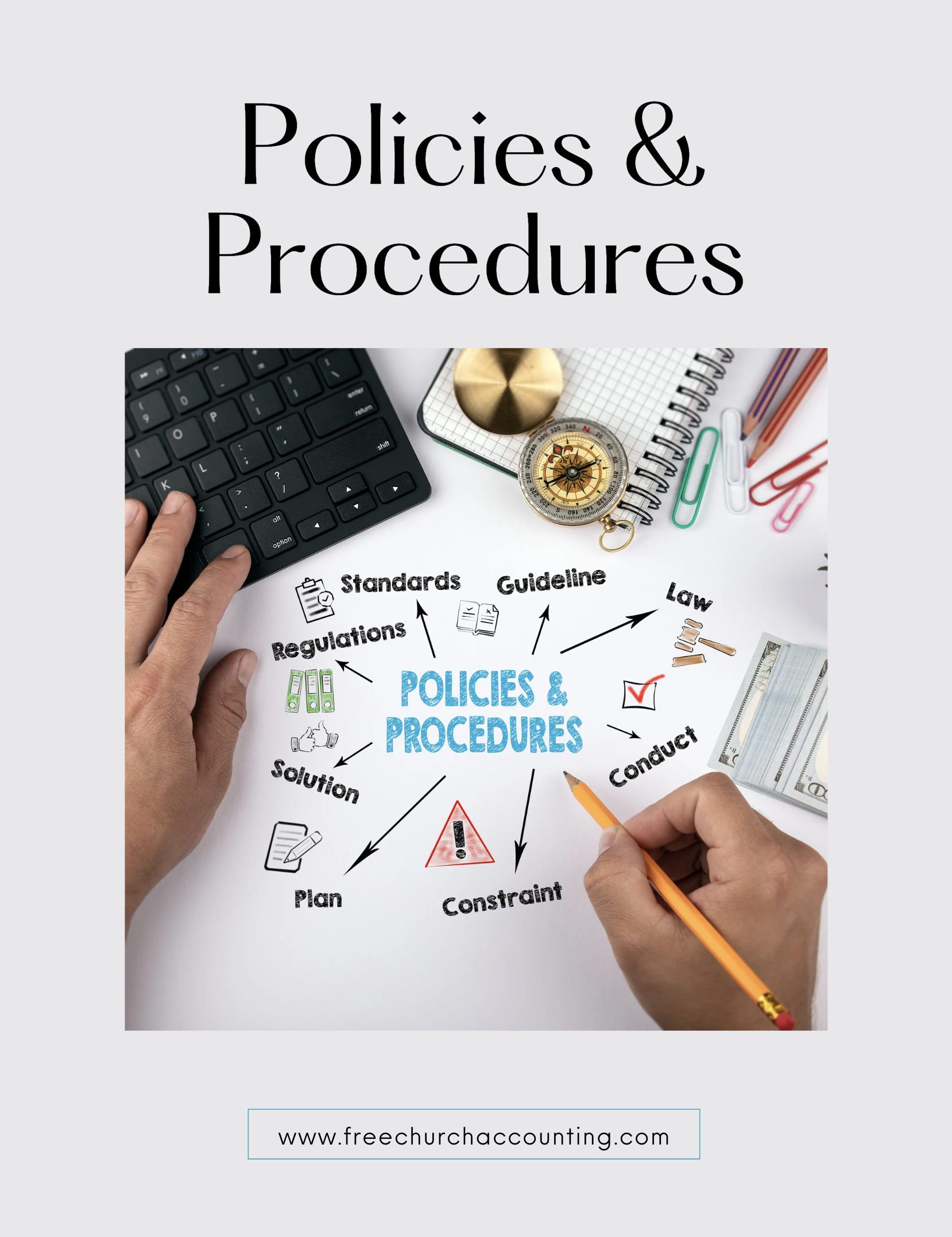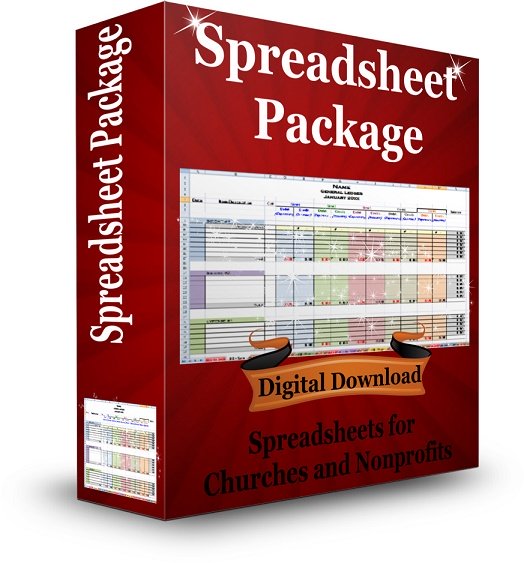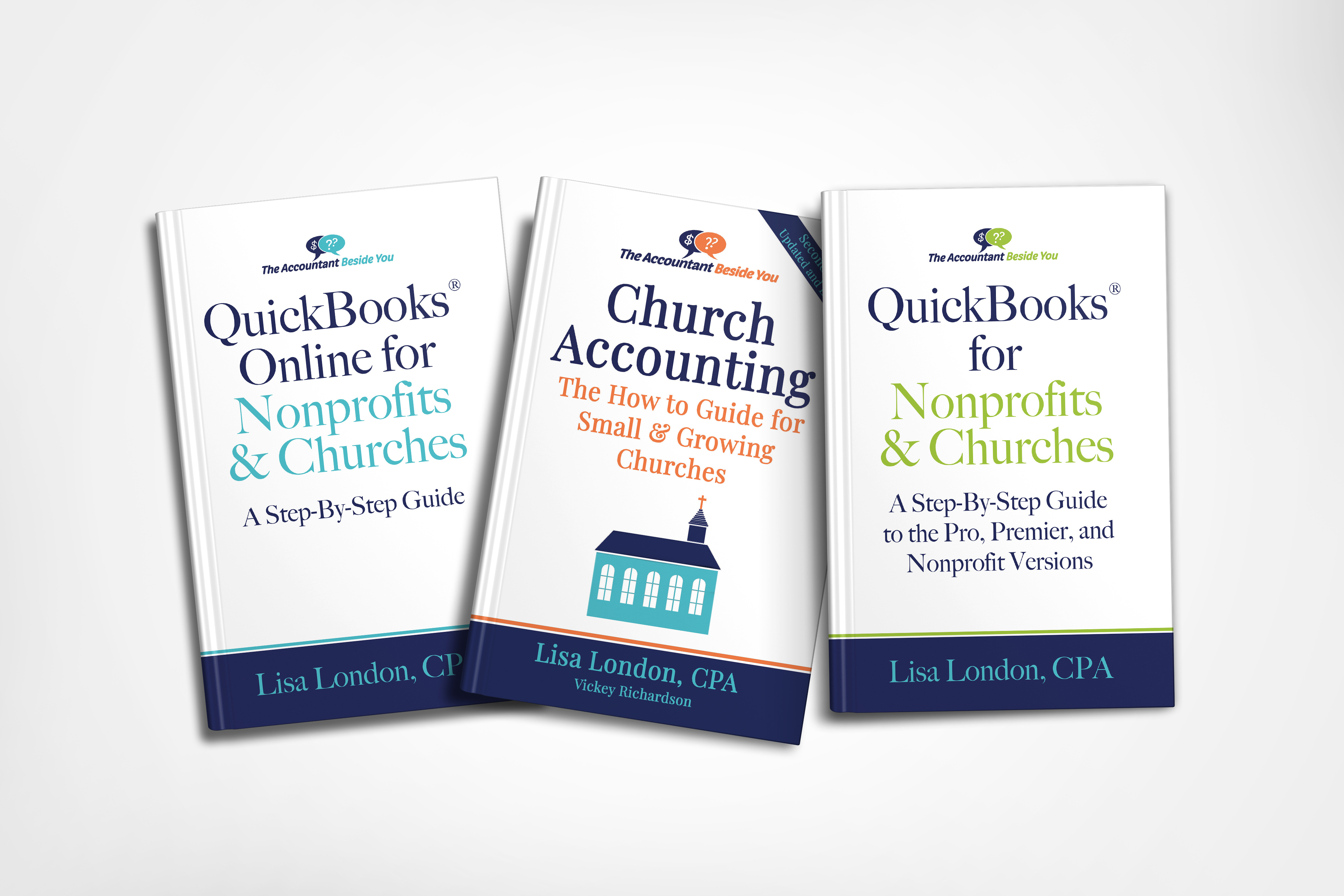Church Audit ... or Not?
A church audit or other alternative procedures enhances transparency and accountability, demonstrating to members and donors that their contributions are being managed responsibly.
A church audit can also help in identifying any discrepancies or inefficiencies in financial processes, allowing for corrective actions to be taken promptly.
Most importantly, an audit can provide valuable insights and recommendations for improving financial practices and internal controls, thereby strengthening the overall financial health of the organization.
Additionally, having regular audits can build trust with external stakeholders, including potential donors and regulatory authorities, showing that the church is committed to maintaining high standards of financial integrity.
HOWEVER....they can be quite time consuming and costly...so are there other options?
The Policies and Procedures Package includes an ebook on audits. Why they are important, alternatives, required documents, internal audit qualifications and much more! It also has a internal audit checklist.
This ebook is included in the Policies and Procedures Package. However, you can purchase it by itself for only $7.95 by clicking the ADD TO CART button below!
The Audits, Budgets, and More ebook is also part of a larger "Policies and Procedures" Package" that is packed full of valuable information and for a limited time you can purchase all 5 ebooks and 8 policy templates for only $32.80
Church Audit Types and Alternatives:

The first and main type of church audit is an External Audit. Those are conducted by external CPAs and can be very costly. There are circumstances when a grant or lending organization may mandate an external audit within a set timeframe. However, if you are not obliged to undergo an expensive external audit, there are alternative options that can offer similar benefits, including:
internal audits conducted by your own finance team. These audits can help identify discrepancies, ensure compliance with internal policies, and improve financial management practices.
Another option is a peer review, where a qualified professional from a similar organization reviews your financial statements and processes, providing an objective assessment without the high cost of an external audit.
Additionally, you might consider utilizing accounting software that offers robust reporting features. This software can streamline your financial tracking and generate detailed reports that can be reviewed periodically. Engaging a certified public accountant (CPA) for a limited scope review or advisory services can also be a cost-effective way to ensure your financial practices are sound and meet necessary standards.
Financial reviews conducted by CPAs can be half the cost of an external audit and are typically accepted by financial institutions.
An Agreed Upon Procedure (AUP) for a church is a type of engagement where an auditor is hired to carry out specific procedures that have been agreed upon by the church and other involved parties, such as a governing board or donor. Unlike a full audit, an AUP engagement does not provide an opinion or assurance. Instead, it focuses on particular areas of interest, such as verifying the accuracy of financial records, ensuring compliance with church policies, or reviewing the handling of contributions and expenditures.
Additionally, establishing a strong governance framework with regular oversight by a finance or audit committee can provide ongoing assurance of financial integrity. This committee can review financial statements, oversee risk management, and ensure adherence to best practices, thereby maintaining accountability and transparency within your organization.
By exploring these alternatives, you can achieve a level of financial scrutiny and confidence that supports your organization's objectives without incurring the high costs associated with mandatory external audits.
Church Accounting Package
A set of 2 ebook packages that covers the following topics...
- Fund accounting examples and explanations
- Difference between unrestricted and restricted funds
- Best methods for tracking restrictive funds
- Explanations and examples of financial statements for churches and nonprofits
- Minister compensation and taxes
- Payroll accounting and its complexities
- Much more - Click here for details
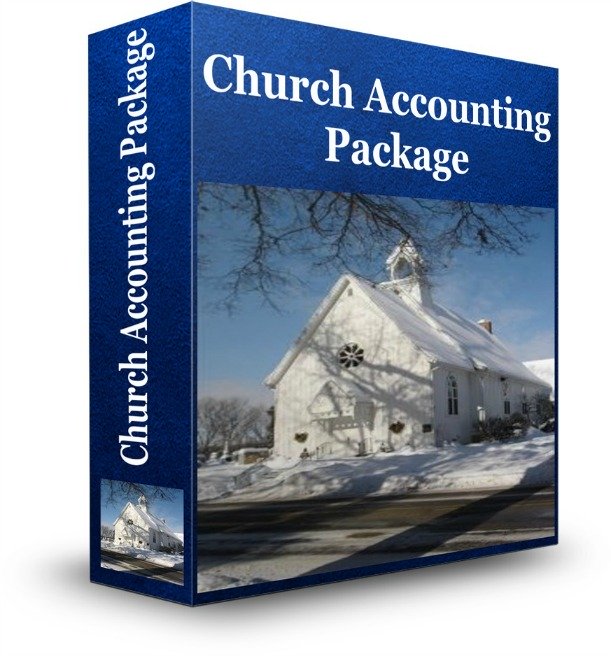
Remember...an Audit or Agreed Upon Procedures engagement is not a reflection on the competence or integrity of your
financial staff. Rather, it is a routine procedure designed to protect
both your staff and your church.
A Church Audit should entail:

- Independently verify treasurer(s) reports.
- Ensure funds are handled correctly.
- Confirm that donated funds are used as per donors' stipulations.
During an audit, the auditor typically assesses:
- Accounting controls to minimize errors or losses.
- Segregation of duties to ensure checks and balances.
- The reasonableness of systems and procedures considering various factors like organization size and budget.
- Adequacy of insurance coverage.
- Records demonstrating donors' instructions for contributions.
Spreadsheet Package
The Spreadsheet Package includes:
- Contribution Tracking Workbook
- 5 Fund Automatic Accounting Workbook
- Bank Reconciliation Workbook
- Collection Count Sheet
- Mileage Log Workbook
- Much more - Click here for details
PLUS a Word document with 3 examples of contribution statements for cash, non cash, and quid pro quo donations that you can customize for your own use!
Required documents:

For both external or internal audits, specific documents will be required:
- Organizational finance and treasury policies and related procedures, along with approved meeting minutes
- List of bank and investment accounts with authorized signatories
- Financial statements for a specified period
- Bank and investment account statements, reconciliations, and transaction records
- Paid invoices, payroll data, income transmittals, and deposit records
- See more on required documents in Book 3 of the Policies and Procedures series
The Church Accounting: How To Guide devotes a whole section of the book to payroll for churches. It covers payroll terminology and forms and then takes you through the steps necessary to set up a payroll, calculate and file the necessary taxes and forms, and even details how to handle the minister's payroll. It also includes sections on filling out IRS forms: 1099, 1099-NEC, and 1096.
If you have QuickBooks or are considering using it in the future, go ahead and purchase the QuickBooks for Churches and the How To Guide combo for a complete package on setting up and administering a payroll using QuickBooks.
Internal Auditor Qualifications:

Generally, a person qualified to conduct an internal audit for a nonprofit or church usually possesses experience in accounting principles, obtained through bookkeeping, office management, or accounting courses.
They need to dedicate a significant amount of time to the audit, as it can be a lengthy process.
Consider referring to an internal checklist guideline for guidance such as the one in the Audit, Budgets, and More ebook.
In some cases, small churches or nonprofits may mutually agree to have their respective treasurers audit each other.
Churches often have congregation members with accounting expertise who are willing to volunteer their services for the audit.

Coupon!
Here is a 10% discount code for all the ebooks, spreadsheets, and packages on this site:
FCA
Note: click on "PACKAGES" in the top navigation bar for a list of all of the ebook and spreadsheet packages on this site!
